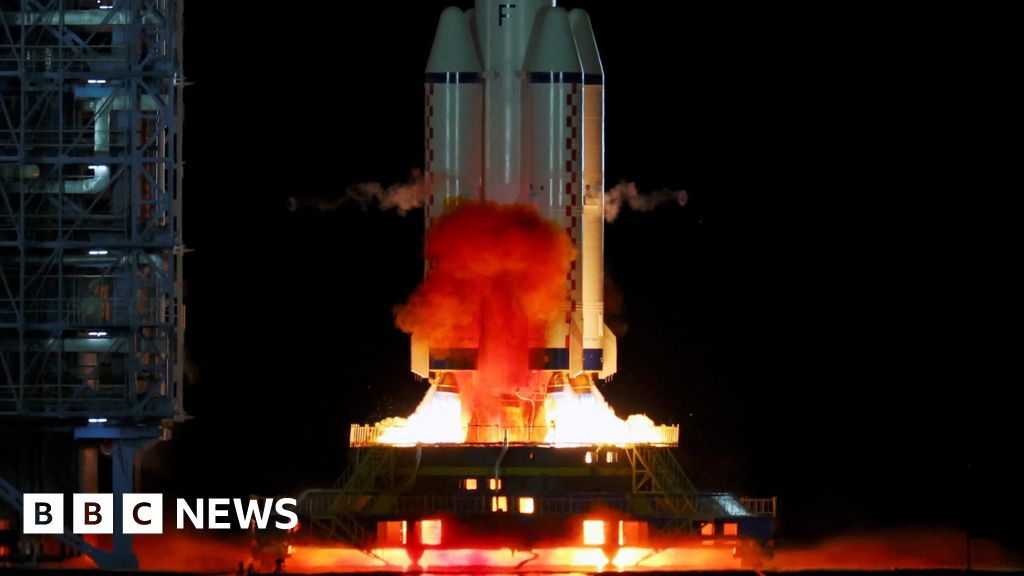Reuters was granted rare access to the Jiuquan Satellite launch centre, where the ground trembles beneath as the spacecraft launches into the sky. Flames illuminate the Gobi Desert as the rocket takes off with a thunderous roar. The BBC also had the opportunity to visit the launch site, located just over a kilometre away from the blast-off.
The Shenzhou 19 spacecraft, crewed by three taikonauts, is heading to China’s space station, Tiangong, also known as the “Heavenly Palace.” The astronauts will conduct experiments and spacewalks during their six-month stay as part of China’s efforts to send someone to the Moon by 2030.
While China’s space ambitions have been met with admiration in Dongfeng Space City, where the town celebrates the space programme with nationalistic fervor, concerns have been raised in Washington. Nasa chief Bill Nelson has warned of a space race between the US and China, with fears that Beijing may use its space programme for military purposes.
Despite these concerns, China has made significant advancements in space exploration, including retrieving samples from the Moon’s far side and landing a spacecraft on Mars. The country also plans to launch thousands of satellites for broadband coverage from space.
As China’s space programme continues to progress, the focus has shifted to lunar exploration and the potential for resource extraction. The Moon’s resources, including rare earth minerals and helium, pose economic opportunities for countries like China. However, the challenges of lunar missions and the need for international cooperation remain key factors in the future of space exploration.
Chinese experts emphasize the benefits of space station experiments, such as studying bone loss and muscle atrophy in microgravity, with potential applications on Earth. Despite the challenges ahead, China remains committed to its space ambitions, with plans to land a crew on the Moon in the near future.
President Xi Jinping’s support for the space programme reflects the country’s commitment to advancing its capabilities, even amidst economic challenges. However, restrictions on media access and security measures highlight the sensitivity of China’s space activities and the importance of keeping secrets in the competitive space race.

